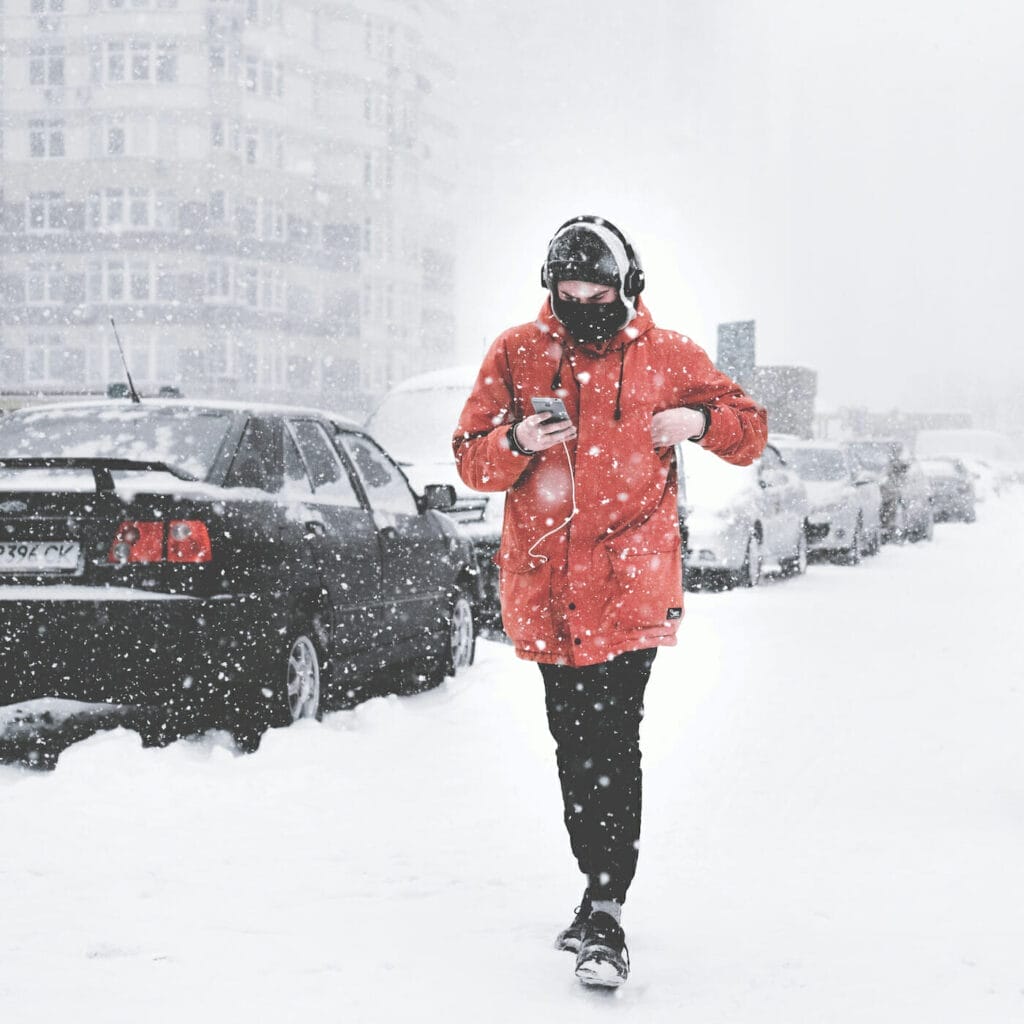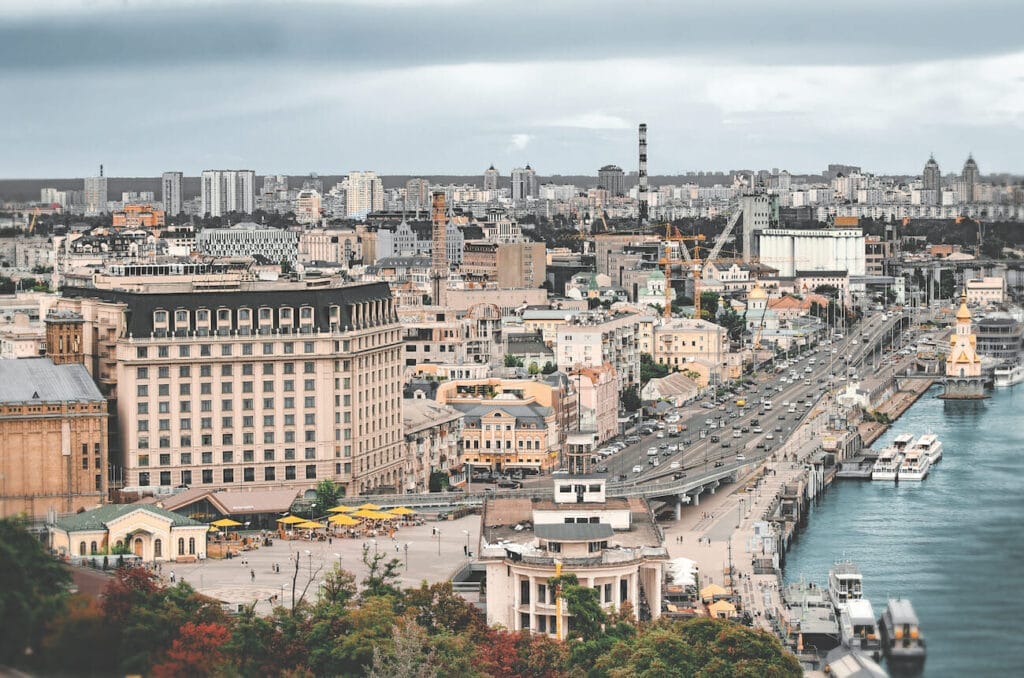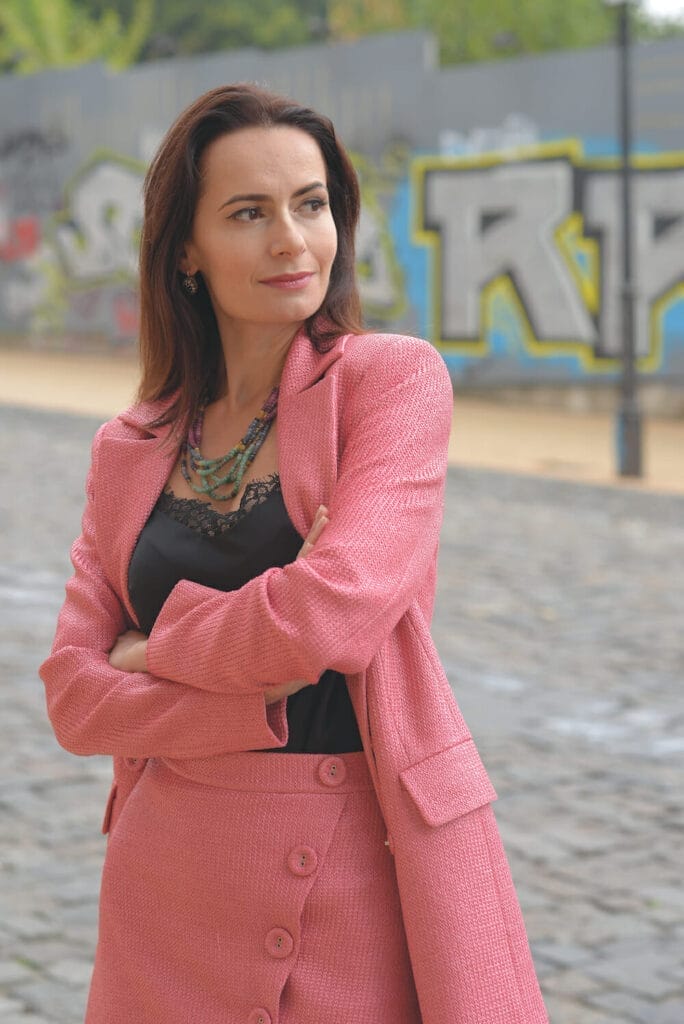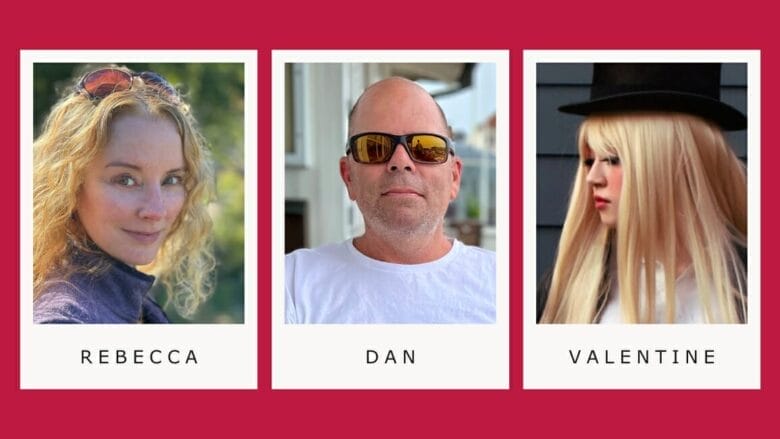This article is a reprint from the July 2022 DANES magazine.
By Alla Shorina, Freelance journalist & Communication Advisor
Family and education
Until the age of three, as a rule, children are brought up at home by the mother in the family. It is believed that the longer the child stays under the care of a mother at home, the healthier the child will be physically and emotionally.
This close connection with mother (and grandmother) is typically built in the house of the young family, and remains with Ukrainians for a long time. By tradition, mothers and grandmothers rarely punish children. If a child needs to be reminded of the rules, then dad comes to the rescue.
Adults consider participation in sports clubs and creative studios a positive recreation for children. It is believed that a Ukrainian child should be busy with something useful all the time so that they do not have time for troublemaking.

Children go to school until the age of 17, and then continue their studies at universities, because higher education is considered the standard. After four to five years, having received a Bachelor or Master’s degree, at about the age of 22, a young Ukrainian is supposed to find a first job according to competencies (not a student part-time job) and then move further along this path.
As a result of this pace of learning and the early age of maturation, by the age of 30 to 35 more and more Ukrainians begin to wonder: “Have I chosen the right profession for myself – what do I really want to do?” In the last 10 years, a growing number of young Ukrainians are beginning to talk about potential mistakes in choosing a career path they will love through life.
Ukrainian educational institutions in large cities only recently began to systematically provide vocational guidance, and practical training in schooling and education. In Kyiv and other big cities, private companies have started to organize guided courses for various professions and specialties to help high school students find their preferred career and choose a university.
Gender equality
Equality between the sexes in society is welcomed in Ukraine, but the difference between the nature of men and women is not being erased. On the contrary. It is accentuated in the norms of everyday interaction in Ukraine. It is still, for example, considered polite when a man gives way to a woman in public transport, opens the door to the car, helps her with her coat, and pays the bill in a cafe. This is the norm both in Ukrainian business etiquette and in everyday life.
In rare cases, when it comes to a business meeting and a woman insists that she herself wants to pay the bill in a cafe or restaurant, the man may give in, but most likely he will feel embarrassed. Ukrainian women know that even unfamiliar men will help her, if necessary, to carry a heavy suitcase or if difficulties arise.
A woman is perceived as the soul of the family. She creates comfort in the house, positive communication and warm relations with children, parents, and relatives. The woman/mother has a strong archetypical role in Ukrainian culture.
Women are also an active part of the labour market, making up 48% of the working population (7.3 million out of 15.4 million) before the war, according to the State Statistics Office. On average, however, women’s wages are 1720% less than the wages of men. To eliminate this difference, the Ministry of Economy of Ukraine drafted a National Strategy to reduce the gender pay gap by 2023.
In a 2021 count, more than 31,000 women were in the military (12% of the personnel) and more than 57,000 women were involved in the activities of the Ukrainian Army. At the end of 2021, the Ministry of Defence of Ukraine issued a policy requiring women from 35 fields of activities – from financier to teacher – to register information about their qualifications to the military registration and enlistment offices.
This decision looked excessive and caused some public critique. Today, in the situation of war, the attitude has of course changed. In the future, a new program will likely be implemented in Ukraine for military service for women.

In most cases, however, protection, physical strength, courage and fortitude are considered the sphere of activity of men. Nonetheless Ukrainian men, including those in the military, often joke that they are not afraid of anyone – but their wives.
Each family has its own traditions and conventions, and sometimes it looks like Ukrainian men have too many tasks. But more often than not, a Ukrainian man will be proud that he can make his family happy and will even brag about it a little to his friends. Protecting and providing for one’s family and aging parents is the basis of selfrespect for a Ukrainian man.
LGBT+
Ukrainians are very freedomloving and do not limit the freedom of choice of their fellow citizens in most areas of life if this does not interfere with the interests of others. There is no sharp discussion in society about the rights of LGBT people, and homophobia is not supported by the majority. A poll in May 2022 found that 63,7% agreed that LGBT members should have equal rights, marking a significant shift in public opinion compared to a similar poll in 2016.
In 2021 International Lesbian, Gay, Bisexual, Trans and Intersex Association has ranked Ukraine 39th out of 49 European countries in terms of LGBT rights legislation, similarly to EU members Bulgaria and Romania.
Back in 1991, Ukraine became the first country in the post-Soviet region to embark on the path of decriminalizing homosexuality, which had been banned in the USSR .
Despite the strong traditional values and the significant role of religious rituals, LGBT Pride events have been held regularly in Kyiv in recent years.
At the 2021 edition of Pride in Kyiv last December, Radio Free Europe reported: “The parade, whose participants included staff from the U.S. and U.K. embassies, was accompanied by a strong police presence. There were no reports of any incidents.”
In 2022, due to the war, Pride will not be held in Kyiv, but in Warsaw on June 25.
Digitalization and IT
The IT industry is highly developed in Ukraine. Developers from Ukraine are often found in international teams in companies such as IBM, Microsoft, and Apple – and Copenhagen is already home to a strong Ukrainian IT community. Fans of computer games worldwide probably know the series “Cossacks” and ”Stalker” 1 and 2, which were created by the Ukrainian team GSC Game World.
According to 2021 data, services in the computer and information technology sector comprise 30% of Ukrainian exports (the leading sector is transport services with 38%).
Fintech has also been rapidly advancing segment, as IT solutions not only make banking services convenient but also create a new type of bank. Financial services in digital only, app-based banks with low fees and no offline branches have been an everyday reality in Ukraine for the past five years. The Monobank model for mobile phones created by the Ukrainian FintechBand team became so successful that in 2020 they launched a similar project under the Koto brand for British users, having received a corresponding license from the regulator in the UK.
Prior to the invasion in February 2022, the international payment systems Visa and Mastercard implemented many of their new products as pilot projects in Ukraine, because the population rapidly adopts innovations, later launching these new banking services for customers in other European countries.
Smartphones are not merely a sign of high income and status, but have long been a necessary tool for performing business and everyday tasks in Ukraine.
In autumn 2021, Ukrainians began to use a digital passport in all types of interaction with government and business. All official documents are displayed from different registries in a special application called Diia. These digital documents in the phone have the same validity as “hard copy” documents.
According to the Ministry of Digital Transformation, 25% of all mobile phone users in Ukraine at the end of 2021 used non-smartphones. In 2022 this figure is expected to decrease to 20%. At the beginning of 2022, a special state scheme for people over the age of 60 was announced, which involved the free issue of smartphones in July-August 2022. In other words, the government is pushing for the digitalization of all bureaucratic procedures and social processes.
In order for the elderly and retirees to be able to use electronic services, the government planned to donate a modern smartphone to every retiree in 2022. This would allow the continued advance of digitalization and expand access to public and city services.
However, at the time of writing (mid-June) nobody knows the effect of Russia’s fullscale invasion of Ukraine. How will this impact the Ukrainian society and future? The war slowed government plans in some sectors, but the high level of digitalization is helping even now. For example, Ukrainians who were forced to move to another part of the country due to the occupation immediately received financial assistance simply by recording their movement with geolocation in the mobile application Diia.
About Alla Shorina
Born 1980 in Chisinau, Moldova. When her parents (mother from Ukraine, biological father from Russia) divorced and civil strife broke out in 1989 (which later ended in military conflict and formation of the Transnistrian Moldavian Republic) she and her mother moved to Ukraine to the industrial city Kryvyi Rih.
Since 2011, she has lived and worked with her family in Kyiv, but in late March 2022 she moved to Denmark to avoid the war and help her 16-year-old daughter, who arrived a month before. Her 19-year-old son, her brother and parents remain in Ukraine.

Education and professional background: Master’s and PhD degree in journalism from Dnipro National University, reporter at the national press agency Interfax Ukraine, Head of PR at Dnipropetrovsk Regional State Administration, and PrivatBank.
November 2011 – present: Author and organizer of international events and publications in Ukraine. PR & Media Manager and member of the Board at COOP Ukraine.
“My biological father still lives in Russia, and when the war began in 2022, he was in no hurry to find out how things were with me and his grandchildren. When I published a journalistic video on my YouTube channel, he left this comment: ‘You Ukrainians were captured by the Nazis and you need to be reassured.’
This is an example among many experienced these days by Ukrainians for mixed families of how propaganda kills everything human.”
For the moment, Alla and her daughter live as guests with a Danish family hosting them in Virum.
Alla Shorina (allashorina@gmail.com) is searching for job opportunities at ambitious companies and organizations in Denmark and abroad. She would like to work on projects aimed at the restoration and development of Ukraine.




